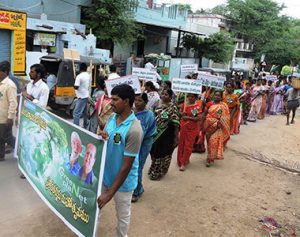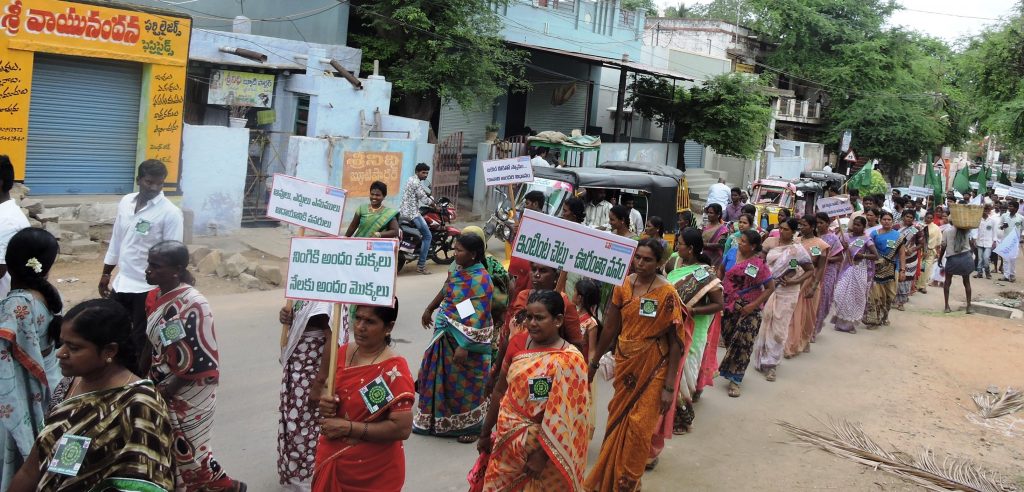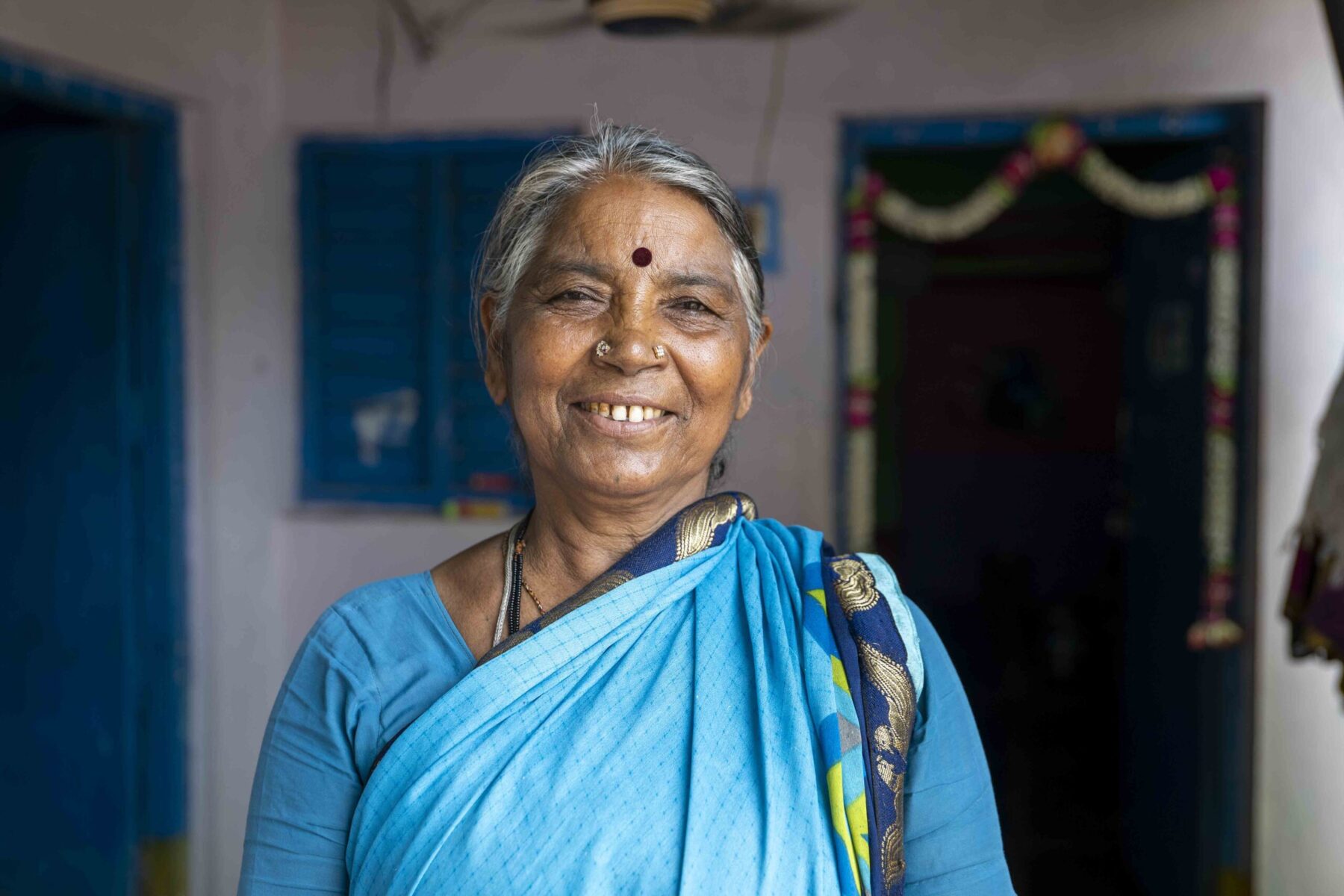- During the month of June, RDT conducted several awareness sessions in seven regions regarding the environment and the use of non-recyclable materials.
- The objective is to sensitise the rural population of the serious consequences through traditional and effective forms of communication, such as theater or painting.
“If you keep using plastic, I will get angry and lose my powers. I will never be able to answer your prayers again, nor save you or your families,” stated Peddammantalli (Goddess of the People) with rage and Brahma (Creator of the Earth), protagonists of the story presented in a skit at the community center of Rural Development Trust (RDT) in Kalyanamandapam, Anantapur.
This skit has been performed during June in more than seven regions of Anantapur with a clear objective – to sensitise the rural population of the serious environmental consequences caused by the excessive use of non-recyclable materials such as plastic.
Awareness marches have also been held in the main streets of several villages to denounce the use of plastic. “A planet without plastic” or “A tree in each house, a forest in each town” were some of the most recurrent and loud slogans at the marches.
These activities, implemented by the Ecology and Sustainable Livelihoods sector of RDT, are part of the programmes carried out throughout June on the occasion of World Environment Day.
The sessions also included awareness talks about the importance of crop diversification as well as the benefits of organic agriculture.
Information tents were installed outside community centres where people could find seed samples and horticulture plants to enrich their fields in a healthy and ecological way. Panels were also displayed to warn against the adverse effects of chemical pesticides.
Sathyanarayana, the technical director of the Ecology Sector, says that overpopulation is another cause of strain on the environment. “Every year, the population of Andhra Pradesh suffers a steep growth, a phenomenon that has a direct consequence on the over-exploitation of natural resources and other disastrous impacts on the environment,” he explains.
India generates 5.6 million tons of plastic waste per year and 60% of the plastic waste is discharged into the world’s ocean annually. Three of ten rivers in the world that transport 90% of the plastic to the world’s oceans are found in India: the Indus, the Ganges, and the Brahmaputra, according to the World Economic Forum.
“The biggest challenge in India is to change the mentality regarding cleanliness and the environment,” opines Moncho Ferrer, the programme director of RDT.
Text: Fátima Yráyzoz Aranda.








